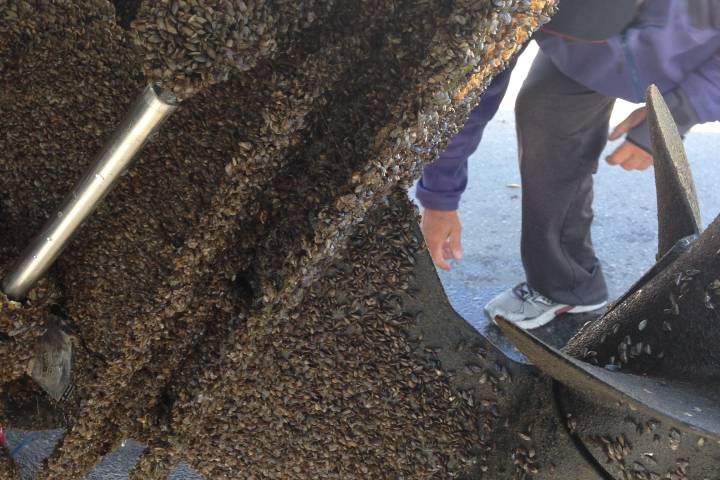Zebra mussels have been discovered in Manitoba. This includes zebra mussel larva in Cedar Lake, which is part of the Saskatchewan River system.

So far, Saskatchewan rivers and lakes remain free of the invasive species and officials want to keep it that way. They are asking people to remain diligent to help stop the spread of zebra and quagga mussels into the province.
One way they can do that is to inspect their boats.
“The boating season may be over, but it is still important to thoroughly clean, drain and dry watercraft and all related equipment prior to next year to help ensure they are free of invasive species before transporting from one body of water to another,” said Environment Minister Herb Cox.
“This includes recently-purchased or imported watercraft, and water structures such as docks, slides and buoys.”
Under provincial regulations, it is illegal to import, possess, transport or sell aquatic invasive species that are considered a significant risk to Saskatchewan waters.
Earlier this year, Saskatchewan amended the regulations to give conservation officers more power to inspect, quarantine and decontaminate watercraft known, or suspected to contain, invasive species.
The federal government also introduced regulations this year to give the same power to officers with the Canada Border Services Agency.
“If it comes from outside of Saskatchewan, be vigilant to protect our provincial waters,” stated Cox.
- Ontario First Nation calls for chemical plant to be shut down amid ‘dangerously high’ benzene levels
- Nova Scotia scraps spring bear hunt idea, public ‘very divided’ on issue
- Ottawa looks to launch national flood insurance program within 12 months
- Alberta, coal lobbyists talked for years about more open-pit mining in the Rockies: documents
Along with Cedar Lake, which is approximately 265 kilometres east of Nipawin, zebra mussels have been found in Lake Winnipeg and in North Dakota waterways.
READ MORE: Expert says Lake Winnipeg is a lost cause due to zebra mussels
Once a waterway becomes infested with an invasive species, it is almost impossible to eradicate. Along with the potential to severely impact aquatic habitats and fisheries, it could also affect hydro-electric power, municipal water systems and irrigation.
According to the South Saskatchewan River watershed stewards, it could cost the province $15- to $30-million yearly to deal with invasive species in Saskatchewan waters.
READ MORE: Zebra mussels cost Canadians billions each year; cost to Manitobans still unknown
It is estimated the cost to manage the impact caused by zebra mussels elsewhere in Canada runs into the billions of dollars. Ontario spends $250-million annually just to control zebra mussels in water intake pipes on the Great Lakes.
With files from Brittany Greenslade


Comments